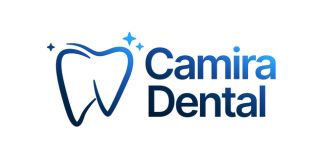Benefits of Brushing Your Tongue
Floss, brush and then rinse with mouthwash. That’s the teeth cleaning routine most people keep, but it misses an important part of your mouth: the tongue. When we think of oral health most people go straight to the teeth. They’re the part of the mouth that needs constant care, and they’re the part that can decay over time. But your tongue spends all day in contact with your teeth, and it can be a breeding ground for the bacteria that cause everything from bad breath to tooth cavities. So, cleaning your tongue is a key part of keeping your mouth clean and healthy, and there are a few major benefits of brushing your tongue.
Fresher Breath
The leading cause of bad breath is the things we eat and drink throughout the day. The sandwich you had at lunch might have tasted great, but a few hours later it probably doesn’t smell quite as good. That’s because the bacteria in your mouth like to grow and feed on the leftover bits of food on your teeth. As bacteria grows, it breaks down leftover food particles, often releasing unpleasant sulphurous compounds as it does so. Brushing your teeth gets rid of a lot of these food particles and helps slow down bacterial growth. But, being a major part of your mouth, your tongue can also collect food particles and become a breeding ground for bacteria. Brushing your tongue is the best way to keep the bacteria at bay and your breath smelling fresh.
Improved Sense of Taste
The biofilm that builds up throughout the day can actually have an effect on your sense of taste. As your taste buds become coated in biofilm, they gradually become less sensitive. Scraping your tongue clears away the biofilm, freeing up your taste buds, aiding in proper saliva production and promoting better digestion of food. Scraping your tongue every time you brush your teeth is enough to keep the biofilm under control. That’s good news for the health of your teeth, and it’s good news for being able to enjoy food to the fullest.
Removes Harmful Bacteria
Not all the bacteria in your mouth live on your teeth. In fact, large amounts of bacteria are right at home on your tongue. It’s both normal and healthy to have some beneficial bacteria on your tongue, but brushing is the best way to remove the harmful stuff. Some of the bacteria found on your tongue are responsible for things like bad breath and tooth decay, and your brushing routine isn’t complete while your tongue remains un-brushed. In particular, we’re talking about the common strain of bacteria called mutans streptococci. Mutans streptococci is a major contributor to tooth decay and keeping it under control is one of the best ways of protecting your pearly whites.
How to Brush Your Tongue
Brushing your tongue is simple and will only take a few moments as part of your regular brushing routine.
1. Buy a Scraper
Most toothbrushes now include a tongue scraper moulded into the back of the head, but you can also buy dedicated tools for the job. Brushing your tongue with the bristles on a toothbrush is an acceptable alternative, but it won’t do as good a job as a proper scraper.
2. Scrape Back to Front
Placing the scraper on the back of your tongue, apply pressure and drag it towards the tip. You should only need to cover each part of your tongue once or twice to properly clean it.
3. Rinse Your Scraping Tool
In between each stroke you should be rinsing or wiping your scraping tool clean.
4. Wash the Scraper
Once you’re satisfied that your tongue is clean, you should properly wash the scraper and allow it to dry until you need it next. Preventing bacteria from growing on your cleaning tools is an important part of keeping your teeth and tongue healthy.
Need a Dental Checkup? Make an Appointment at Camira Dental
If you’re suffering from things like persistent bad breath or you’re worried about the possibility of tooth decay, a quick dental checkup can help put your mouth in order. The experienced team at Camira Dental provides a full range of dental services. We can help you perfect your flossing, brushing and tongue scraping technique so that you can protect your teeth for longer. Please feel free to get in touch with us today if you’d like to make an appointment or discuss a problem you’re experiencing.

